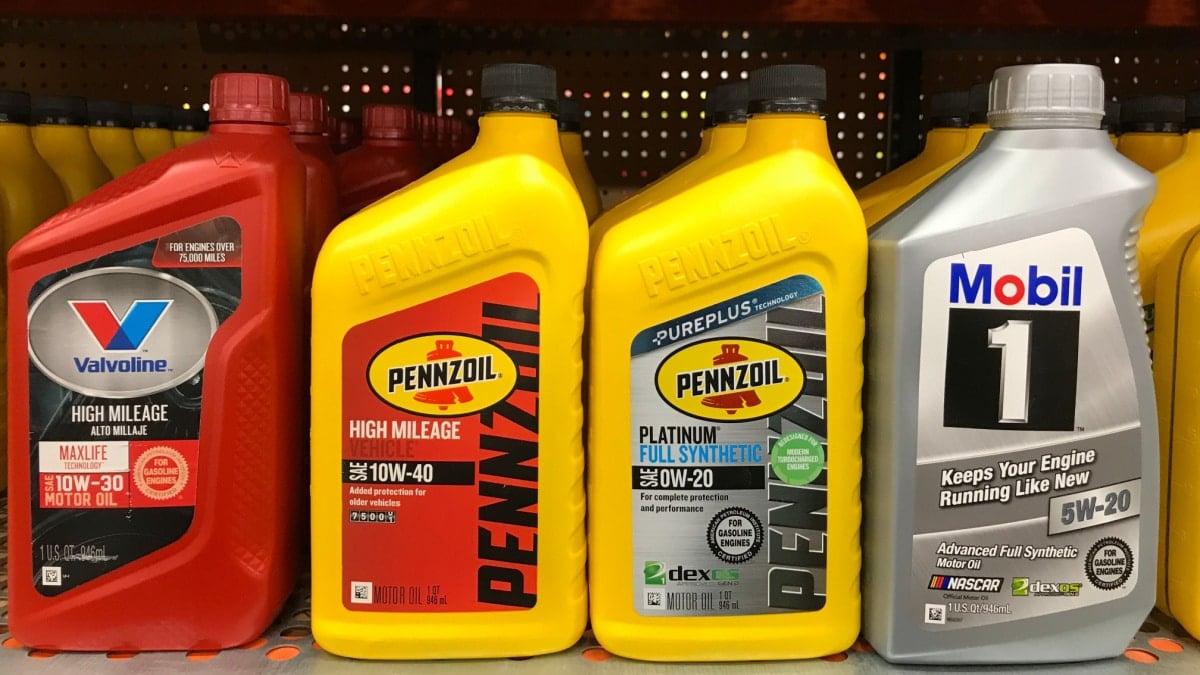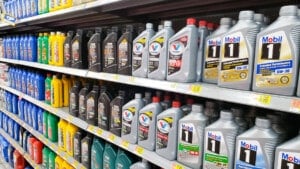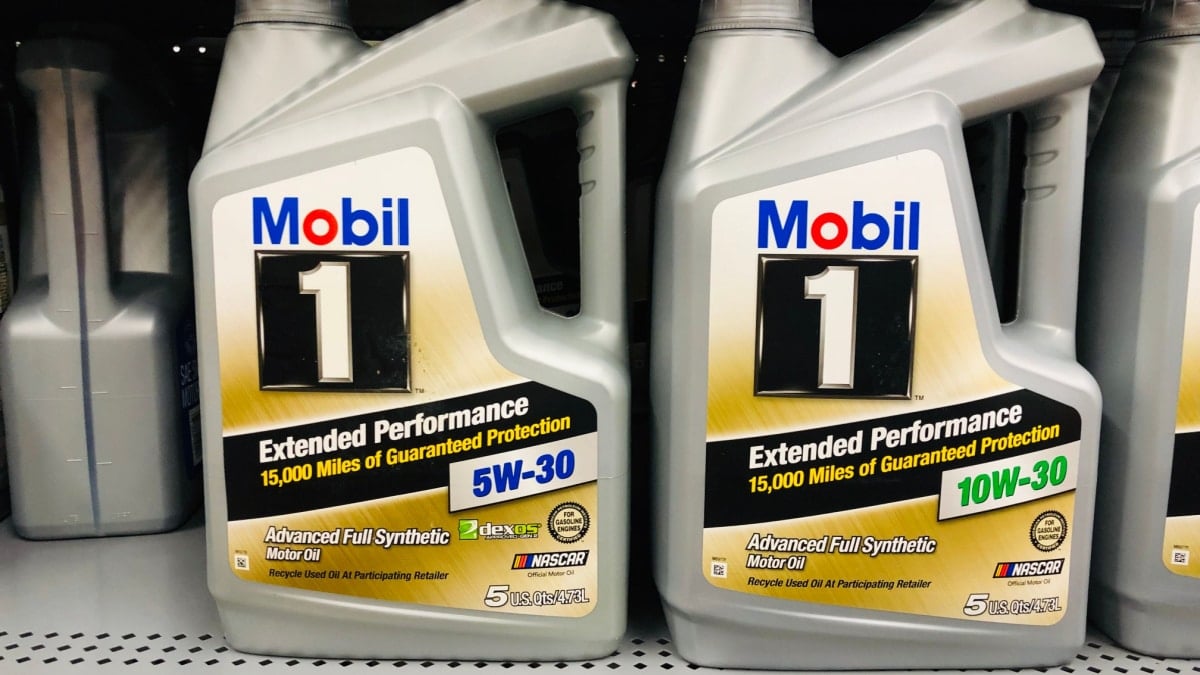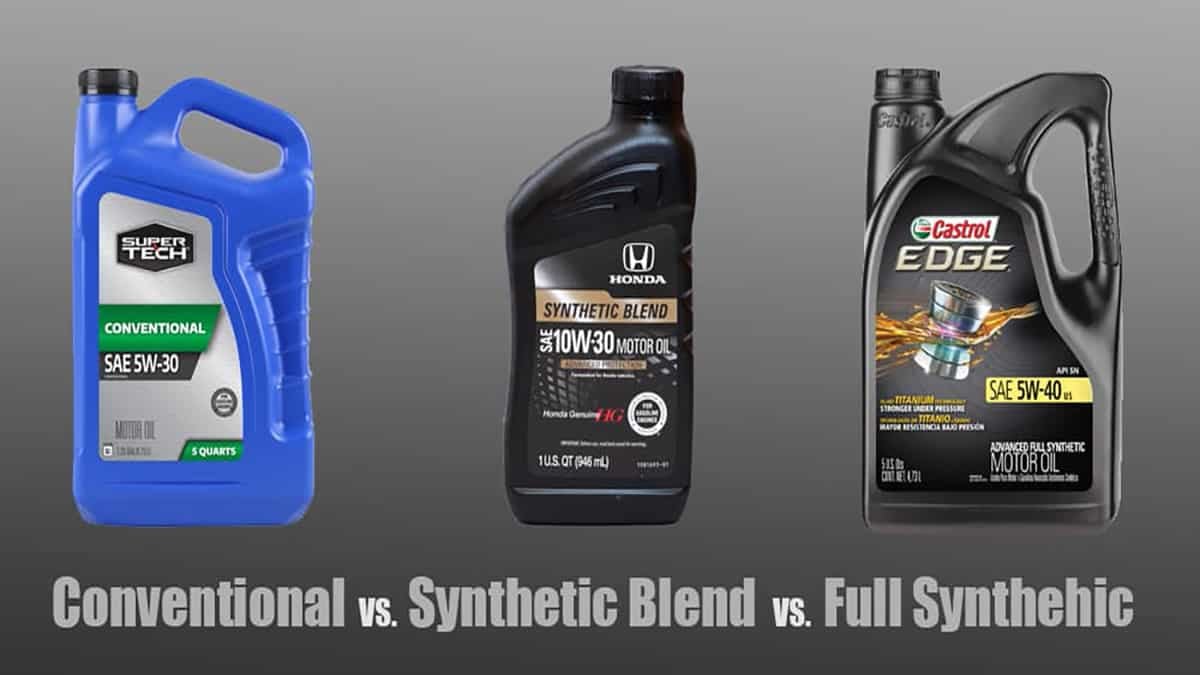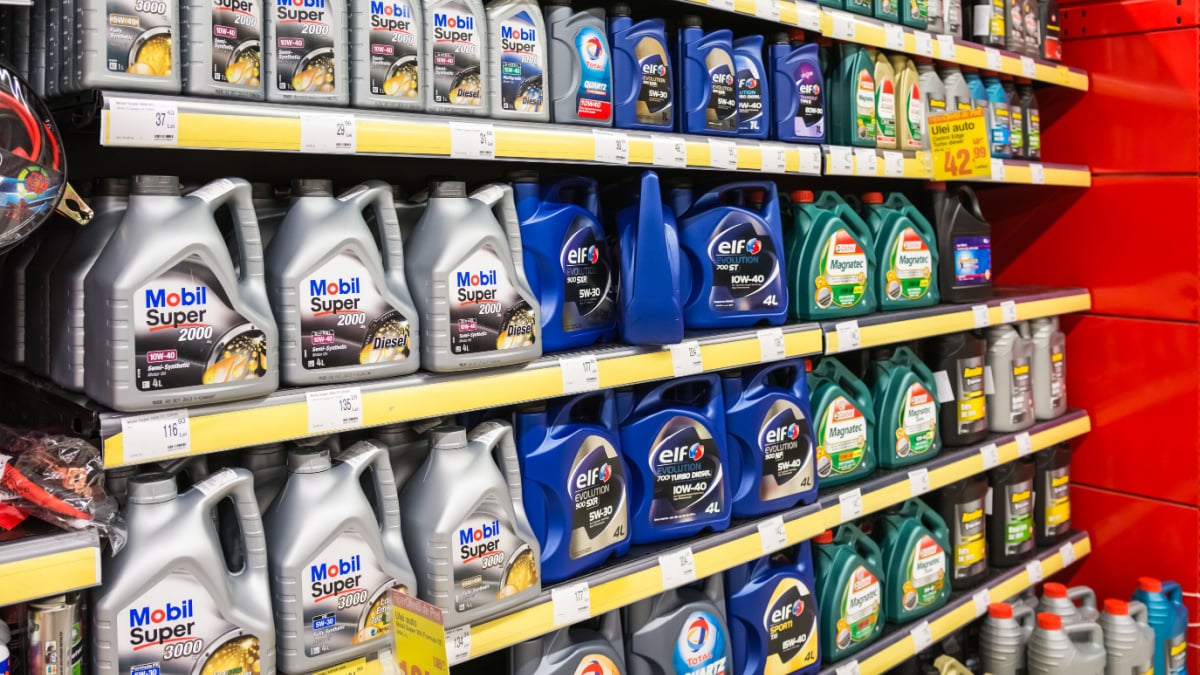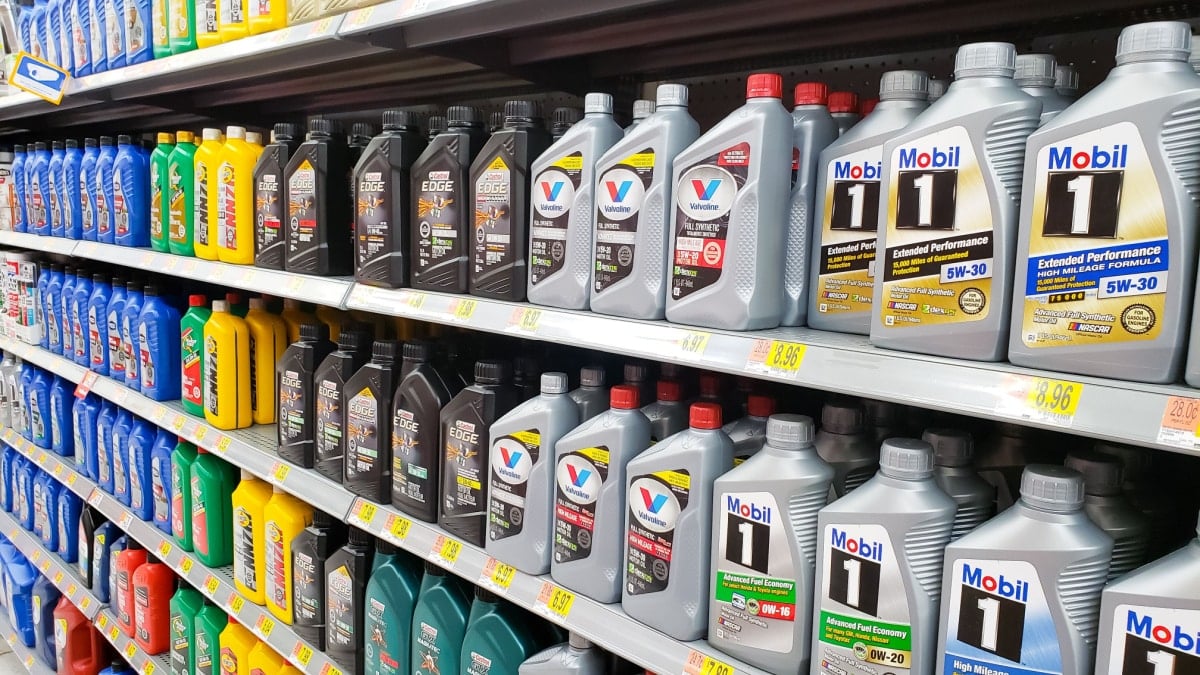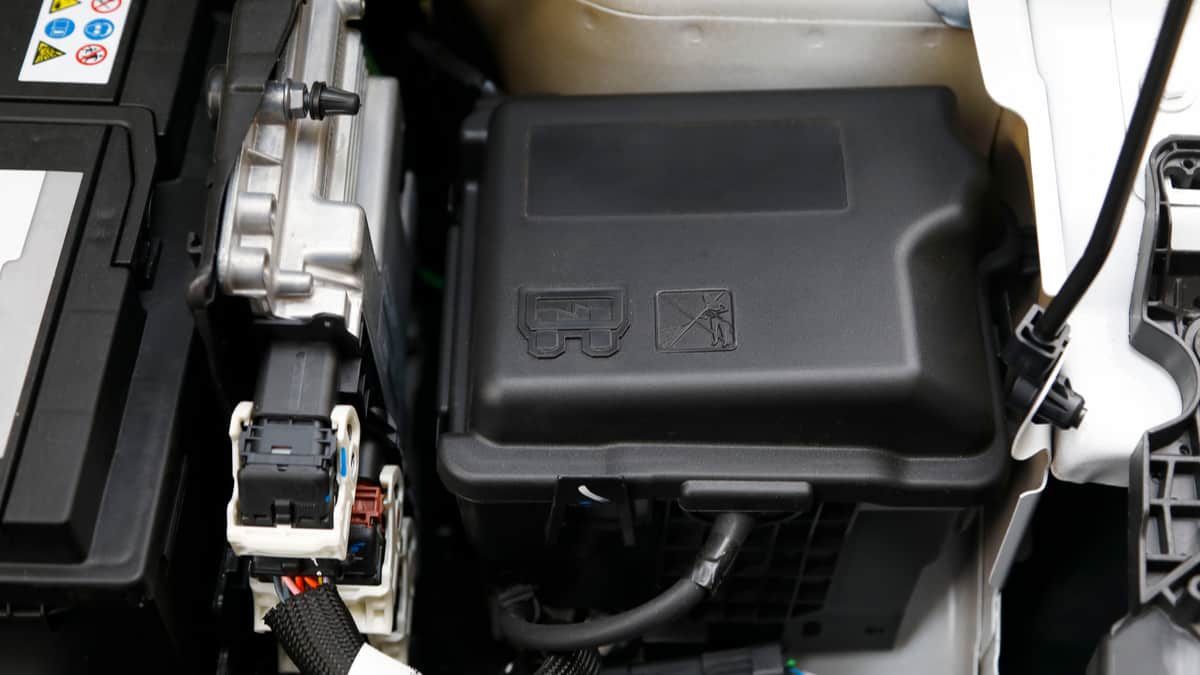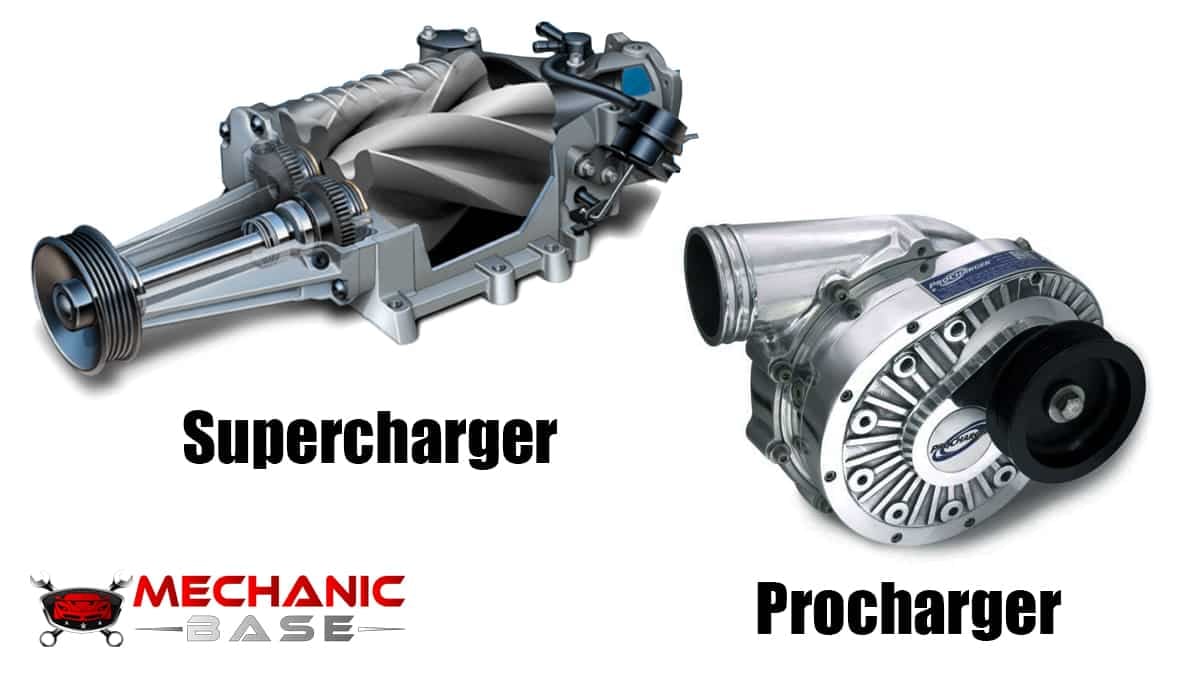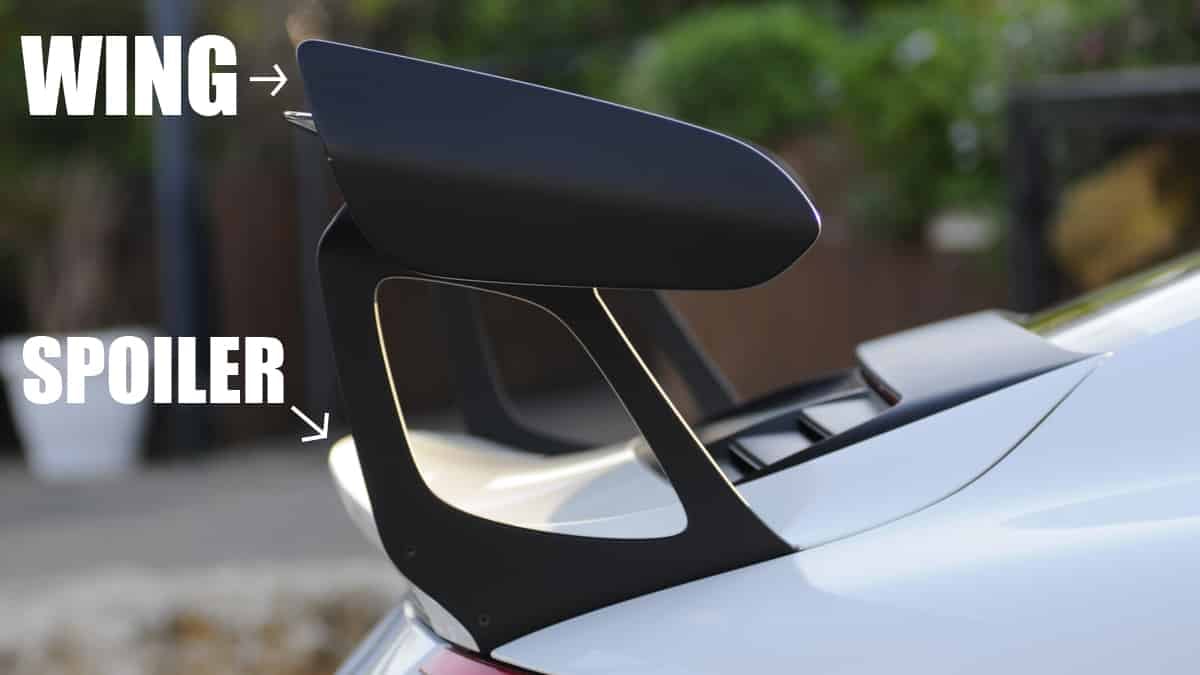When you head to the auto parts store, you face a huge wall of motor oils to choose from for your regular maintenance. Looking at all of these bottles can be overwhelming unless you know which ones are the top brands. Both Pennzoil and Mobil 1 tend to be top choices, but why? Are there any differences between Pennzoil vs. Mobil 1?
We look closer at both brands, so you can pick one for your vehicle. We show you all of the differences and point out what each brand does right. There’s a motor oil buying guide included with this article to ensure you get exactly what you need. At the end of this motor oil guide, we also answer some of your most-asked oil questions.
Pennzoil Vs. Mobil 1 – Which Is Better?
Pennzoil tends to have a wider selection of options and is the top winner based on oil market share. It also tends to be slightly cheaper than Mobil 1 but doesn’t offer as much longevity, so you’ll have to perform oil changes more frequently.
Still, it’s difficult to go wrong with either motor oil, as enthusiasts rave about both. An in-depth look at these brands may help you decide which one is best for you.
Pennzoil
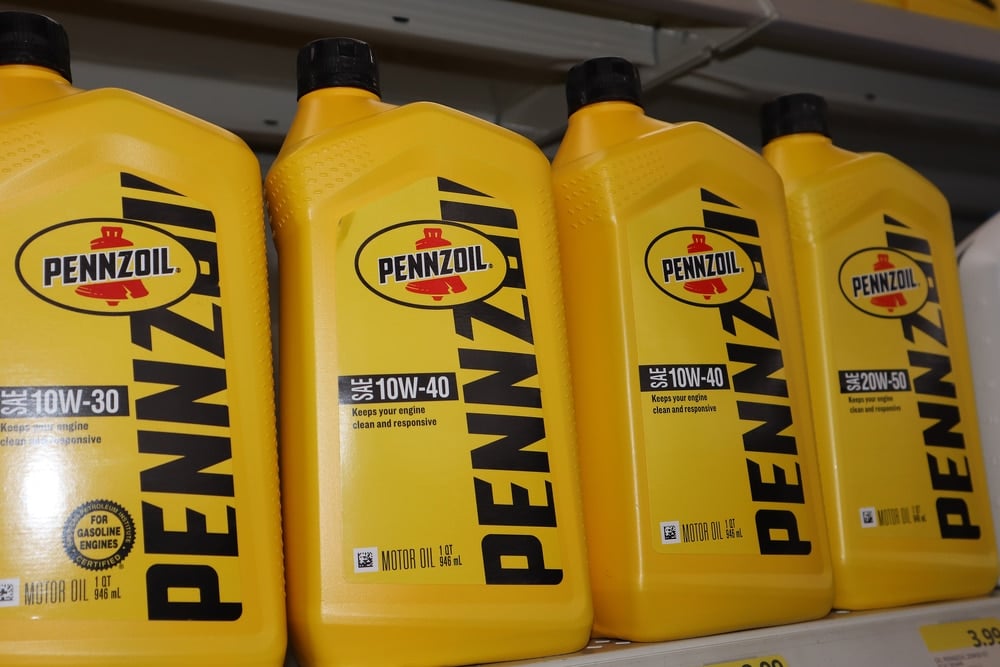
Pennzoil is an American-based motor oil company that’s been in business since 1913. While the company originally started in Pennsylvania, it’s now based in Houston, Texas. Pennzoil was an independent firm until 2002, when Shell acquired the brand.
Today, Pennzoil makes a variety of motor oil products. It’s also a top sponsor in the motorsports industry, often going head-to-head against racers sponsored by Mobil 1.
Pennzoil Pros
What does Pennzoil do that’s extraordinary? Here are a few of the pros you should consider.
- Uses high-quality cleaning agents
- Prevents engine wear with special additives
- Great for use in harsh environments
- Reduces friction for better mechanical performance
- Improves fuel economy because of engine optimization
Pennzoil Cons
Not everything Pennzoil does is fantastic. As with any company, there are some downsides to consider.
- Wide variety of options creates confusion
- Short service life with some options
Mobil 1
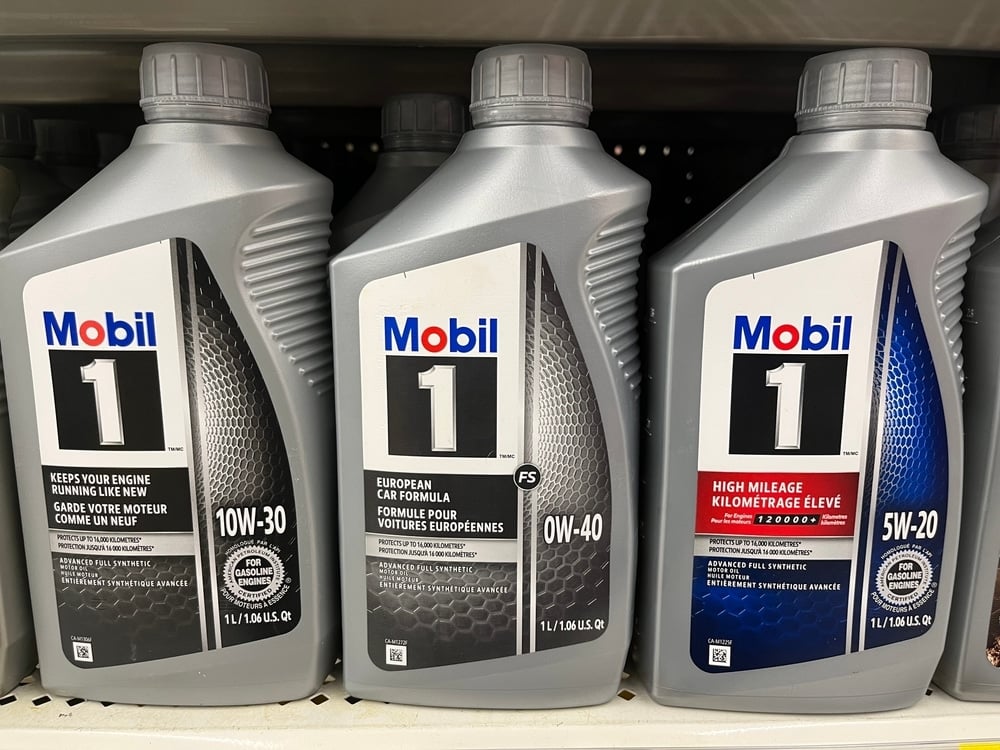
Mobil 1 is another top brand, known for making synthetic oils. The company is owned by ExxonMobil and it’s based in America. The oils have been sold since 1974 but have grown in popularity recently.
Today, Mobil 1 sponsors a lot of motorsports activities. You can also find automotive parts, such as filters, for sale from this brand.
Mobil 1 Pros
What is it that is admirable about the Mobil 1 brand of oils? Here are a few aspects to consider.
- Superior engine protection
- Oxidation prevention
- Synthetic formula that lasts long
- Ideal for any temperature
Mobil 1 Cons
With all of those pros, it’s hard to believe that anything Mobil 1 does could be wrong, but here are some things to think about.
- Oils cost more
- Not all foreign automakers recommend this oil
What’s the Difference Between Pennzoil and Mobil 1 Oil?
As you evaluate how Pennzoil and Mobil 1 stack up to each other, it’s important to look carefully at the differences between the two. As you look at these vital categories, you’ll see that they aren’t as different as you might think.
1. Cost
Both Pennzoil and Mobil 1 are considered premium options. For this reason, you will spend a decent amount on either. However, the cost is slightly higher with the Mobil 1 brand.
If you want to choose something budget-focused, you might prefer one of the cheaper options from Pennzoil. This brand does offer some conventional oil options, which are the cheapest you can pick.
2. Viscosity Grades

Oil viscosity shows you how thick or thin the oil runs in various weather conditions. Every automaker requires a different viscosity for its motors, so it’s important to follow all recommendations. You can find this information in your owner’s manual or by calling a local dealership.
Thankfully, both brands have a variety of viscosity levels available. You can find what you need, whether it is a 10W-30 or 0W-20 oil.
3. Performance
For high-performance protection, you aren’t going to be upset with either option. Pennzoil has synthetic oils available, along with conventional ones, so you have to be careful which one you choose. The synthetic models are going to provide more protection because of the additives.
On the other hand, all Mobil 1 oils are synthetic. They also include a patented “Advanced” formulation that reduces sludge and helps clean the engine. Consumers agree that this brand is worth the extra money, especially if you care about your car engine.
RELATED: Conventional vs. Synthetic Blend vs. Full Synthetic Oil
4. Engine Compatibility
You should never use an oil that’s not recommended by the manufacturer. Because the automaker produced the engine, it knows what you should run in the motor.
With that said, many automakers recommend Pennzoil over other brands. In comparison, there are some European brands that won’t work with Mobil 1, so you wouldn’t want to use it. Make sure you read the recommendations in the owner’s manual.
RELATED: What Type of Oil Does My Car Need?
5. Longevity
What a company says and what is true can be two different things. For example, Mobil 1 has formulations that last up to 20,000 miles or a year, whichever comes first. This estimation is rated highly on how you drive and what type of vehicle you own. Still, most people probably won’t want to go 20,000 miles without an oil change. Synthetic oils should typically be changed somewhere between 7,500 and 15,000 miles.
With Pennzoil, you have a wider selection of oils to choose from. If you pick conventional oil, you may want to change it every 5,000 miles. However, you can get a longer life out of Pennzoil. In fact, some testing has shown that Pennzoil may even hold up better in the engine than Mobil 1.
Choose the Best Motor Oil
After reading all of this information, you may be more confused about what type of oil to use. Yes, it’s good to know what brand is best, but how do you make the other decisions that are necessary? We’ve put together a few of the top factors that should always be considered.
Motor Oil Type
You have options from conventional oil to synthetic oil or the synthetic blend. The traditional oil used in older vehicles is conventional. It is the cheapest and has the shortest lifespan.
Synthetic oil contains special additives unique to each manufacturer. These additives and the formulations ensure a longer life, but you must pay for it. In comparison, the synthetic blend takes the best of both worlds and mashes it together.
Vehicle Age
Once your car shows more than 75,000 miles on the odometer, it’s time to consider switching to high-mileage oil. Both brands offer high-mileage variations, so you can go with either one.
The older engine requires a little more protection, especially against friction. These special formulas are designed to help you go even further without engine wear. Check with your manufacturer’s suggested maintenance schedule because you may need to change the oil more often at this point.
Oil Viscosity
The manufacturer has a set viscosity for you to use. It’s designed to provide the best performance for the engine type.
Find this viscosity in the owner’s manual and only choose that one. If you choose something different and the engine fails, you could lose your factory warranty protection.
Driving Style
With normal highway driving, you don’t have to worry about an excessive amount of wear on the engine. You are a commuter who is using the engine as it was designed.
However, if you are in a lot of stop-and-go traffic or you tow heavy loads, you may need special oil. There are also some better designed for harsh environments.
Is Pennzoil high quality?
Yes, Pennzoil remains the best-selling motor oil according to market share. The reason it continues to sell so well is because of its superior protection for car engines, even if they have a lot of miles. There’s also a wide variety of Pennzoil motor oils to choose from.
Can you mix Pennzoil and Mobil 1?
You shouldn’t mix motor oils, especially if they are synthetic. These oils contain a special blend of additives proprietary to the manufacturer. For that reason, they aren’t exactly the same. If it’s time to add more oil and you can’t use the same kind, you may consider doing an oil change instead.
Does NASCAR use Pennzoil?
Some NASCAR teams rely on Pennzoil. For example, Team Penske relies on Pennzoil, not only with the NASCAR vehicles but also to win IndyCar. Pennzoil oil provides the protection needed for these high-performance race cars to run their best.
Is Pennzoil owned by Shell?
Yes, Pennzoil was purchased by Shell in 2002. Prior to that, the motor oil company was independent, with its headquarters in Pennsylvania. Now, Pennzoil is based out of Houston, TX. It’s become the largest motor oil brand by market share.
After looking at the Pennzoil vs. Mobil 1 comparison, you should probably have the same thoughts we do as mechanics. The differences between the two brands are negligible and might not matter at all. You may choose one based on cost or simply because of what your car manufacturer recommends.
Perform your own head-to-head study to determine which one suits your needs the best. For your next oil change, try one brand and then switch to the other next time. It would be interesting to see which one seems to perform better in your vehicle, but it’s very likely that you won’t notice any differences if you choose oils with the same specifications.
Learn more:
- Castrol Edge vs. Mobil 1 Oil: Differences & Which Is Better?
- Valvoline Vs. Mobil 1: Differences and Which Oil Is Better?
- Jiffy Lube Vs. Valvoline Oil Change: Differences & Which Is Better?
Categories: Engine Oil, Reviews
